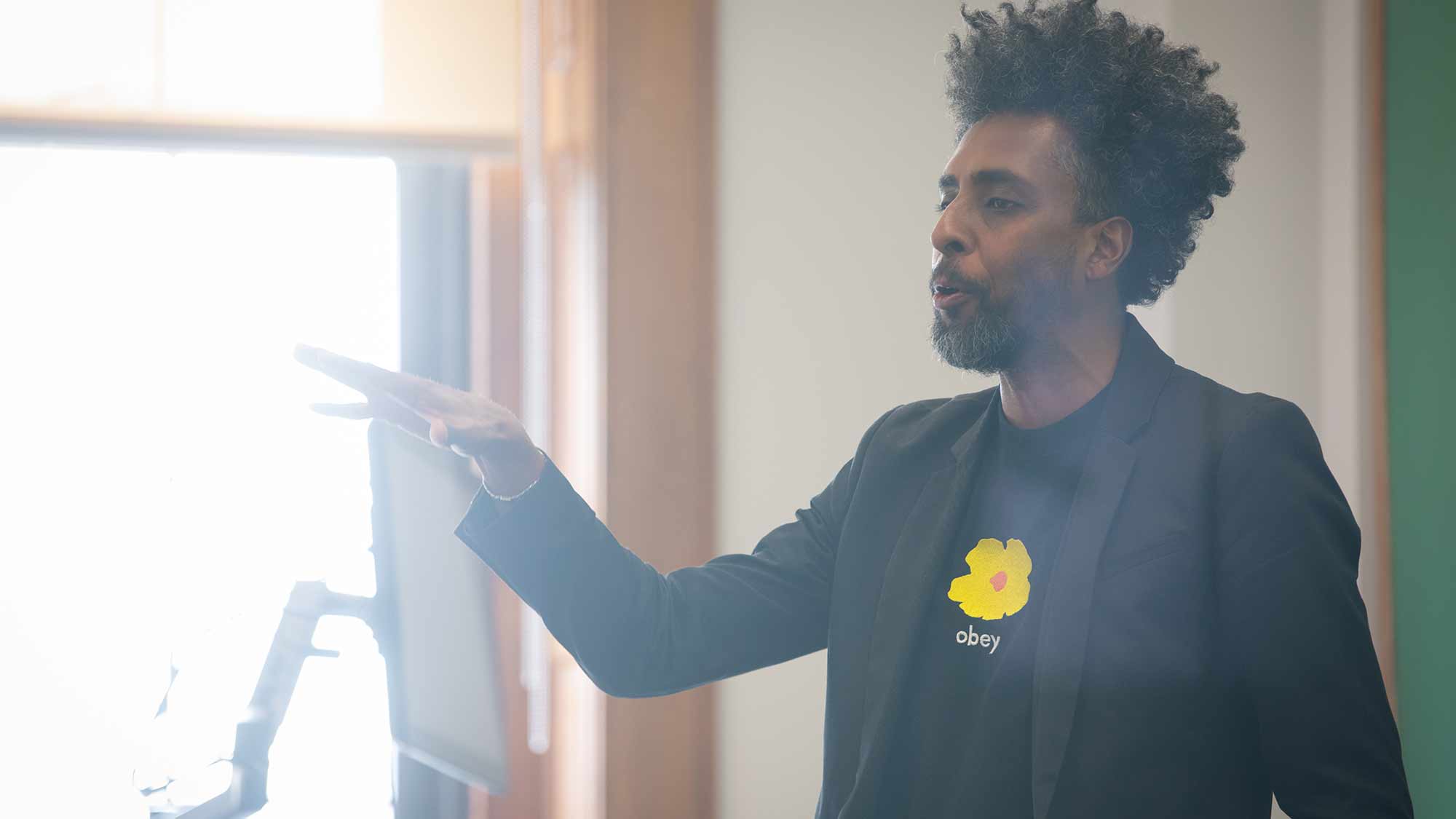Professor Eduard Arriaga-Arango’s path to digital humanities began as a doctoral student in Canada researching cultural transmission in diverse cultures, along with migration. He discovered “the power of computation” to dive deep into data, quickly compile information, and identify patterns. Two decades later, Arriaga is now recognized as an expert in digital humanities, studying how language, literature, culture, and technology collide and intersect.

Language professor explores technology’s pluses and pitfalls
“Within digital humanities, we use computers and digital technology to explore questions in the humanities, and we also question technology,” says the chair of Clark’s Department of Language, Literature, and Culture.
Arriaga characterizes the differences between traditional and digital humanities as “yak and hack—a popular trope in the digital humanities. The ‘yak’ is the theoretical approach that we in the humanities usually take, discussing everything and being philosophical,” he explains. “But in the digital humanities, we bring out the ‘hack.’ We want people not only to speak but also to create things, to use those creations to think and then speak.”
In his research, Arriaga uses both a yak and hack approach. Applying digital humanities methods, he is investigating the connections between data mining — a process through which corporations and governments appropriate humans’ intellectual and creative work — and the extraction of minerals from the earth.
Meanwhile, his research on Afro-Latinx and Afro-Latin American cultures and identities explores the social, political, and ethical questions surrounding technology.
His upcoming book, Arriaga says, “examines the way Afro- Brazilian marginal communities challenge the so-called ‘algorithmic determinism’ through hybrid and communal digital practices in search of data and social justice.”

